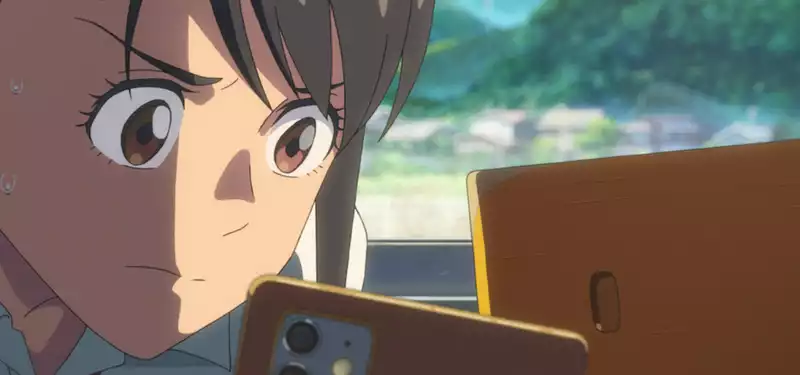Apr 14, 2023
-Susume" Review Roundup: Makoto Shinkai's latest film, "What is your name?
Today is the day that Crunchyroll will release Makoto Shinkai's latest film, Suzume, in North America.
The film has already grossed over $248.5 million worldwide in just seven markets, and those seven markets include Japan, China, and South Korea, which will likely contribute significantly to the film's final box office total. However, this is not an article about box office receipts, so I will refrain from further analysis until Monday, when we will know more about how U.S. audiences reacted to the film.
Instead, today we will look at what U.S.-based publications are saying about Shinkai's latest film. While it doesn't match the 98% rating of Shinkai's contemporary masterpiece "Your Name," it is slightly better than the 92% rating of his latest film, "Weather With You." The film's initial critical reception will surely be good news for Crunchyroll, which is planning an all-out awards season push for "Suzume."
In this Critical Roundup, we will see what U.S. critics are saying about the film as it opens in the United States. To this end, we have compiled reviews mainly from U.S.-based media.
This approach proved largely futile, as the opinions of U.S. critics seem to be in line with those of critics around the world. The consensus is that "Sparrow" is a phenomenal film, skillfully animated and with a story that engages the audience. The most common criticism has been that the narrative in "Sparrow" is a bit rudderless at times, resulting in a film that is not quite sure what it wants to be. Such criticisms were rare, however, and nearly all of the reviews we saw gave the film favorable scores, by whatever metric.
Below are ratings from American publications on "The Sparrow," which is currently in theaters.
In his review for the Austin Chronicle, Richard Whitaker stated that some of the film's supernatural elements do not make it a hit like previous Shinkai films:
Like recent Shinkai films, the mystical mechanism that opens up the world and the story (whether it whether it is the replacement of bodies or the control of the weather) has little impact on the emotional aspect. Nevertheless, there are elements of Sparrow's view of the universe that seem a bit overbearing and ill-defined. But where Shinkai shows his unparalleled talent is in the gentle, compassionate touch he brings to his melodramatic epic. His power also lies in his use of metaphors that can be clumsy, like images that literally lock the doors of old painful memories and experiences. What should be banal and obvious becomes instead universal and moving.
Maya Phillips of The New York Times felt that it was not always clear what kind of film "The Sparrow" wanted to be:
The film functions as a metaphor about growth and loss, without elaborating on the rules of its world, This detracts from the story. The film, like Shinkai's previous film Weathering You and Me, cannot decide if it is a parable about climate change or a fictional reference to a real-life climate disaster. inspired by the 2011 Great East Japan Earthquake, Suzume is a film about that myth and a real-life environmental tragedy, or the inevitable monstrosity of the natural world. humanity's accountability in its monstrous acts, and what this means for the film's plot and resolution, is not well organized. The characters' motives are unclear, the logistics of magic are unclear, and there are more questions than answers. That is what makes "The Sparrow" a fascinating and frustrating film. It fails to deliver on the promise made in that truly brilliant first act, which takes us on an adventure across regions and planes, but the landing point is firmly back at our feet.
Roger Belt. com's Brian Talerico praised Shinkai's ability to make his supernatural and uniquely Japanese films completely relatable to audiences everywhere:
What makes Shinkai's work speak to so many people - first, it's gorgeous. He is a master of light and shadow, shading his animated dramas with visual acumen and making them simply enchanting. He is adept at balancing fantasy elements with real-world imagery, usually using the beauty of the natural world as a gorgeous backdrop, not overthinking things and simply creating beautiful shots. But there is more to Shinkai than just captivating animation. Shinkai tells a story that is both Japanese and resonates on a universal level. While there are important elements in "Suzume" that speak directly to the history of Japan and the fears of its people, Shinkai's gift is his ability to make issues of trauma and anxiety palpable to everyone. While "Suzume" is not the masterpiece that "Your Name" is, I don't blame anyone for being enamored with this film.
Jenna Bush of Slash Film has praised the animation in "Suzume."
Unlike "Your Name," which I went to see blindly, with "Suzume" I was thinking about what I was going to see. I was expecting stunning animation to support the film's message. It definitely delivered. There is a gorgeous blend of textures that look realistic and textures that should stand out but feel simple. As you can see in the photos below, the patterns on the floor and light stands look more realistic, and the s.ta, or chair, looks more childlike. It is as if what is important to Suzume belongs more to the sense of childhood wonder than to the everyday life.
.



Post your comment